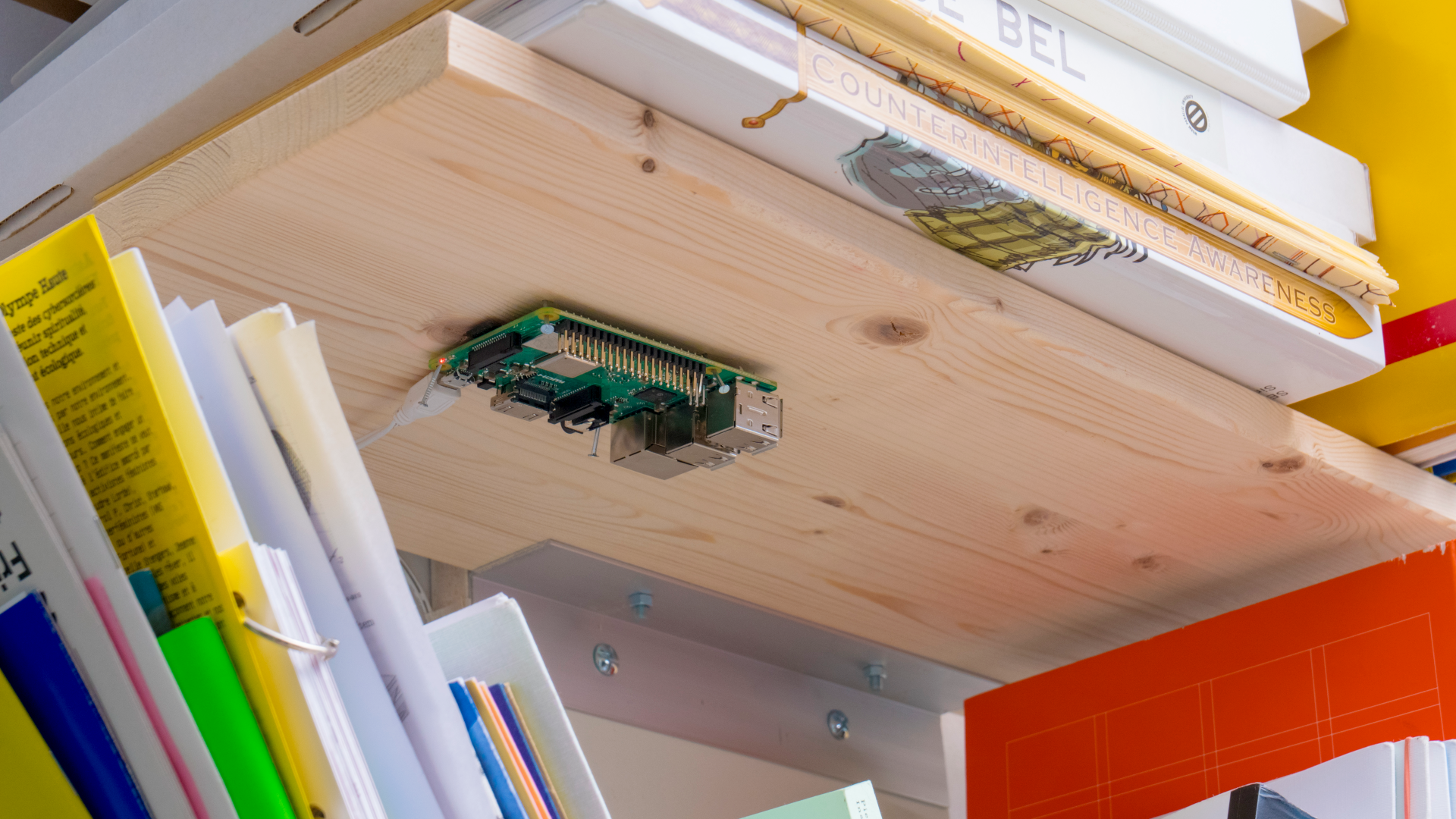Three Takes on Taking Care
The second issue of Networks of One’s Own was initiated by Varia, a Rotterdam based initiative which focuses on working with, on and through everyday technology.
This publication is an occasion to revisit three very different projects that have been important for the emergence of Varia, and for its individual members. These projects give insights into how and why we engage with collaborative practices. While we were gathering in different formations to initiate, develop, organise or present these projects, Varia was being conceived, first as an idea, then as a group and later as a physical space.
As artists, designers and researchers working with and around free/libre open source technology, the authorship of the tools and research that we develop is shared, not just amongst us at Varia but also with a wider international network. Multiple agents are involved at different moments, with varying intensity and for a range of different reasons. This results in intricate interrelationships of ownership which complicate documentation and long-term maintenance. Relational projects need flexible support structures that can handle and hold fragmentation and clustering.
For the projects in this publication, a chain of interrelated events provided an infrastructure for ongoing reflection, sharing and collaborative attention to such projects. Our path crossed at Varia in Rotterdam but also during 35c3 in Leipzig, at the Computer Grrrls exhibition in Paris, at Constant worksessions in Brussels and Antwerp, in conversation with XPUB tutors and students or at AMRO in Linz. While a lot of work was done by bringing these projects to different meeting points, we felt there was a need for concentrated rumination and active documentation. By collapsing maintenance work with publishing, we found a form that enabled this collective care work to happen and to spend the necessary concentrated time together. The making of this publication created a space to interconnect multiple ways of taking care. As a result, we hope that the projects have become more clearly articulated and are now ready to be released back into the networks to form new constellations.
Bibliotecha
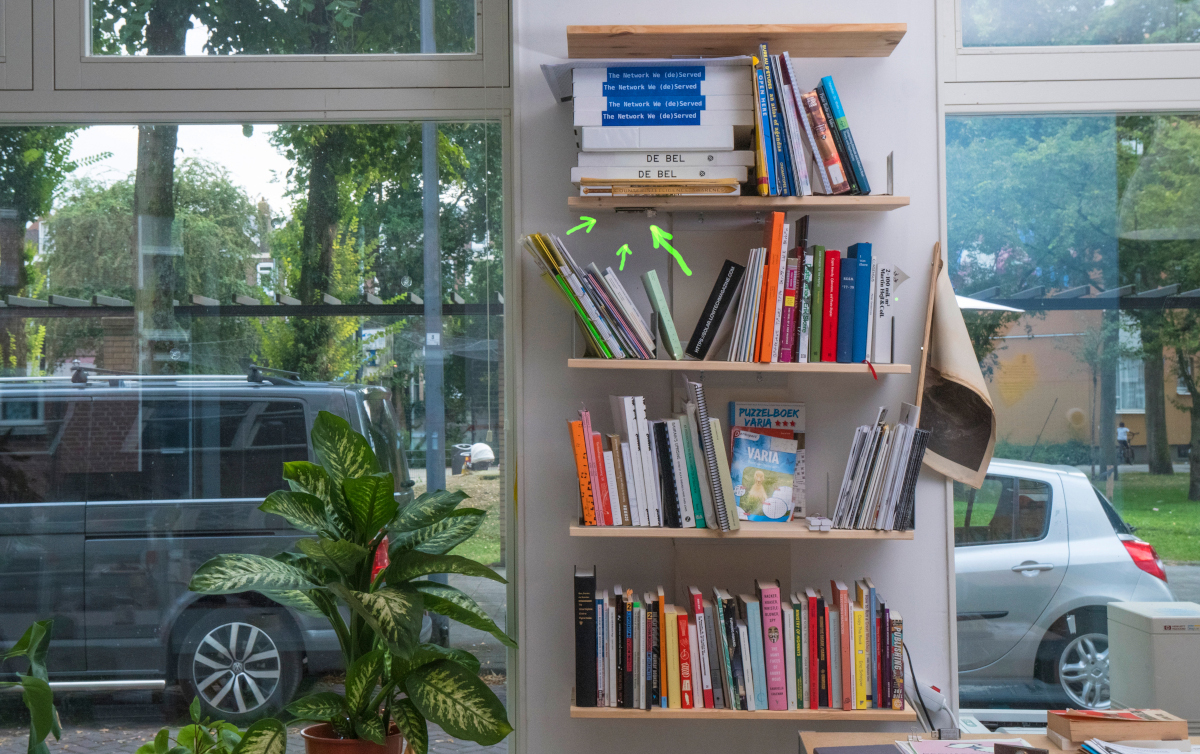
Bibliotecha proposes an alternative model of distribution for digital texts. It allows specific communities to form and share their collections, through a single-board computer running free software to share books over a local WIFI hotspot.
Bibliotecha’s history begins in the Piet Zwart Institute, where there was an active culture of reading and sharing study material made available via a common bookshelf. In the same convivial way the students took, shared and returned books from that bookshelf, they sent each other PDFs over the internal mailinglist. That happened until the moment they were asked to stop, since sharing these books might involve copyright violations. While digital formats and the internet should make it easier than ever to share books, digital rights management and repressive copyright systems make the physical book paradoxically easier to share than its digital counterpart. In response to this we came up with what would eventually be Bibliotecha, a digital library that was available via its own off-line network. The project started at the ‘Free Libraries For Every Soul’ hackathon at Impakt 2013. Since then, it has been presented as an installation and a workshop at different events and venues. Introducing the project to new audiences provided an opportunity for the contributors to travel with the work and gain experience and exposure as cultural practitioners. While Bibliotecha addressed a practical need at the time, its real importance has been to open up the forms and possibilities of a shared practice on the one hand and the computer network on the other.
For this issue we interviewed different people using Bibliotecha to get a sense of how the project has been used. In addition we updated the software and rewrote the installation manual. A source code repository is included in this publication.
Start reading: interviews
Publication tool: mkdocs
Homebrewserver.club
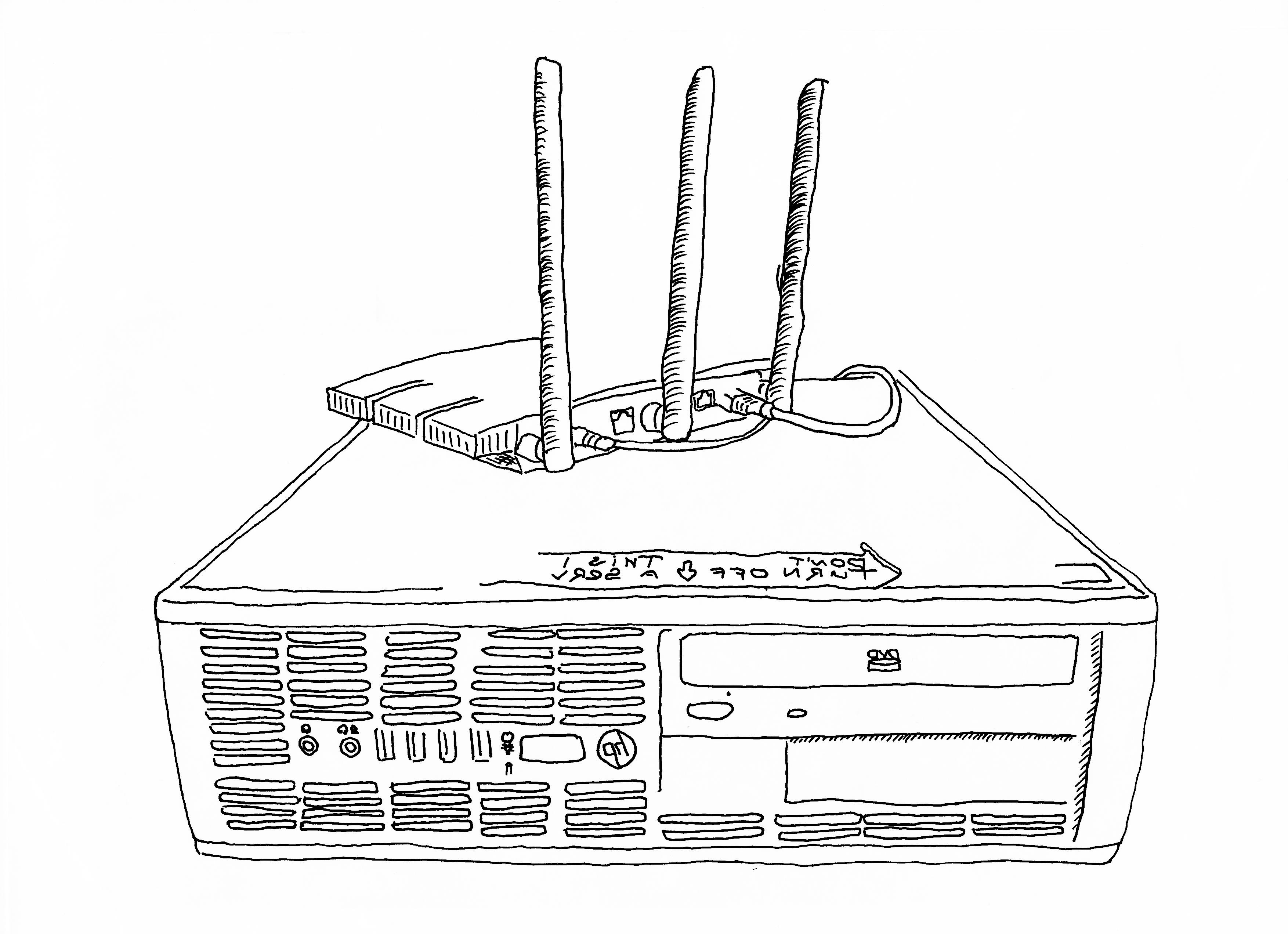
The homebrewserver.club started in 2014 after attending a few editions of the Rotterdam Crypto Party. While Crypto Parties were focused on encryption and privacy — essentially offering cryptography as a solution to surveillance and corporate dominance — there was a parallel interest to look at the more systemic issues of corporate platforms. Out of this interest the homebrewserver.club was founded as a way to learn about hosting one’s own on-line services rather than relying on corporate ones. The homebrewserver.club takes the ‘home’ in homebrewserver.club literally and the ‘self’ in self-hosting figuratively. That means its members host from their homes rather than from datacenters, for and with their communities rather than just for themselves. The club has a history of recurring but irregular meetings, first at the Wunderbar in Worm, later at the Piet Zwart Institute (after closing hours) and finally in Varia. The club meetings tended to be thematic in nature, focusing on a particular topic (VPN, Mail, Web Servers) and opening up the collective knowledge that existed in the group of participants. In the early days there was also a roaming server, used as a ‘club house’. This server, which would be hosted by different participants after each meeting, served as an on-line social space. Later, the focus in the club shifted to more in-depth and contextual tutorials that were published as series on http://homebrewserver.club. The club has thus worked as place for collective learning and skill building, where technological choices get contextualized on the axes political-economy and DIY amateurism.
We re-articulated the HBSC manifesto and added several tutorials on how to get started with self-hosting. A redesign of the website is part of this second edition of NOOO.
Start reading: manifesto
Publication tool: Pelican
Ruminating Relearn
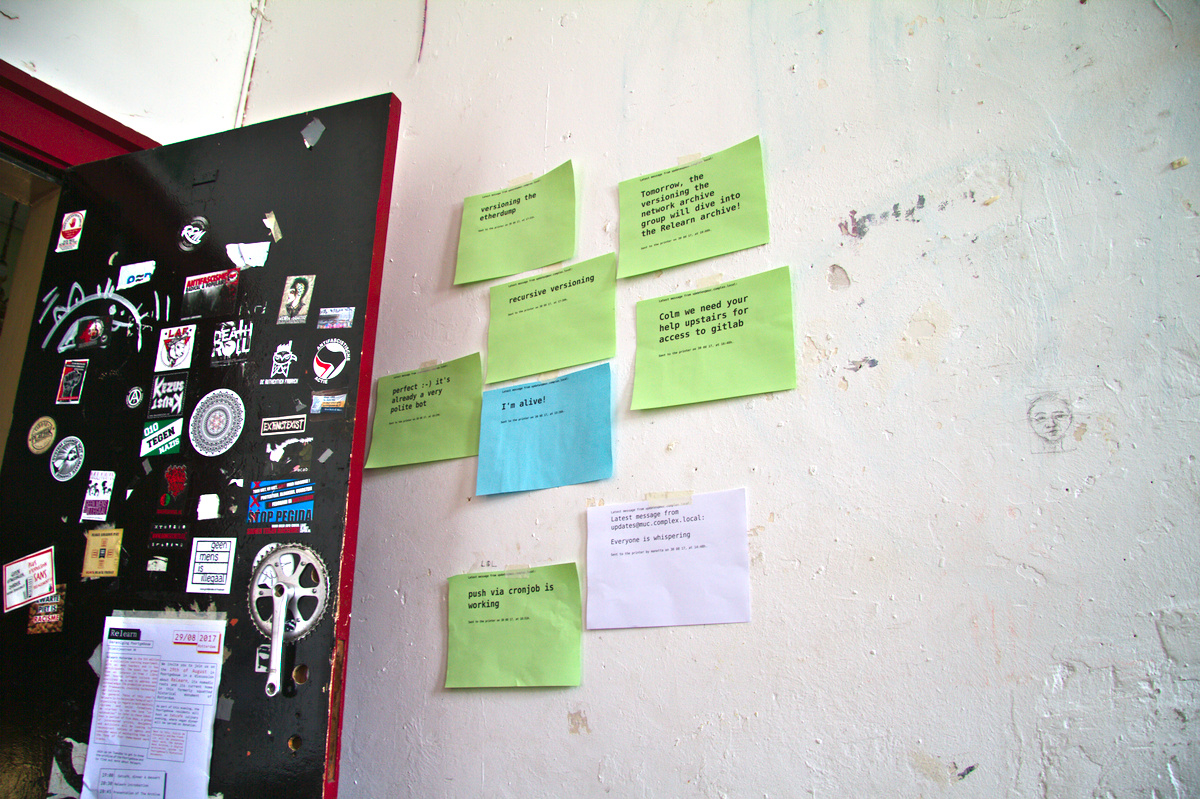
Relearn is a collective learning experiment with as many teachers as it has participants, week-long gatherings that have been taking place since 2013. In 2017 a group of people now involved in Varia decided to organise an edition of Relearn in Rotterdam.
For this publication, we ruminated the traces of that event. By actively documenting the experience of Relearn, we highlighted and spent time with questions that continue to circulate in the network of participant-teachers. We annotated sources to generate reflections and to open up the discussions to a wider audience with the help of a glossary.
Start reading: preamble
Publication tools: Etherpump & Distribusi & EXIF-image-editor
Colophon
This issue was written, edited, designed and produced in the summer of 2019 between Rotterdam and Brussels.
With contributions from Varia (Manetta Berends, Yoana Buzova, Cristina Cochior, Dennis de Bel, Silvio Lorusso, Luke Murphy, Lídia Pereira and Roel Roscam Abbing), Constant (Femke Snelting) and Colm O’Neill.
Thank you: distribusi, etherpad, etherdump, etherpump, mkdocs 1.0.4, mkdocs-alabaster, EXIF-image-editor, Pelican and Pandoc
License: GNU Free Documentation License
Edition: 100 + https://networksofonesown.varia.zone
This event is made possible with the kind support of the Creative Industries Fund NL.
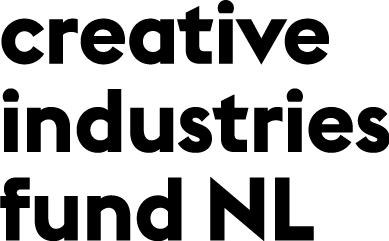
Copyleft Varia, 2019
A READ/WRITE version of this document can be found here: https://pad.vvvvvvaria.org/nooo2.episodeintro
This file can be created with the following command:$ curl https://pad.vvvvvvaria.org/nooo2.episodeintro/export/txt | pandoc -f markdown -t html -s -c assets/three-takes-on-taking-care.css -o three-takes-on-taking-care.html && echo "
Written at $(date '+%A %d %B %Y (%H:%Mh)')." >> three-takes-on-taking-care.html
Written at Thursday 26 September 2019 (13:00h).
